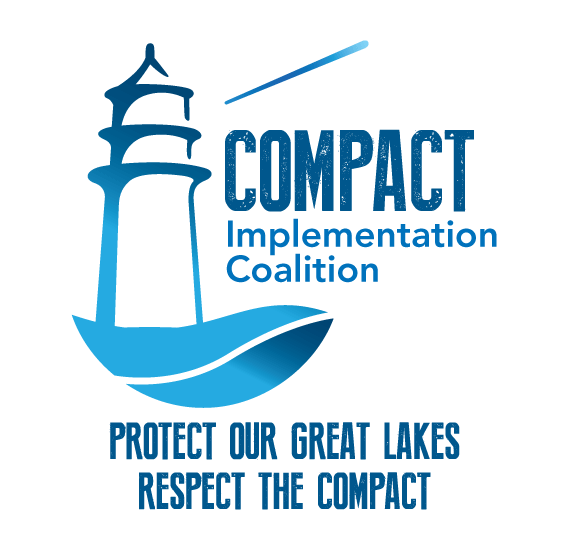Application for Diversion of Great Lakes Water Falls Far Short: Bad Precedent in the Making
MADISON & WAUKESHA — With today’s release of the Wisconsin Department of Natural Resources’ (DNR) draft technical review and environmental impact statement on Waukesha’s request for Great Lakes water, a diverse group of committed and respected Wisconsin-based nonprofit organizations known as the Compact Implementation Coalition (CIC) reaffirms its opposition to the City of Waukesha’s application to divert water outside the Great Lakes basin. The CIC sees Waukesha’s diversion application as unapprovable by Wisconsin and by the Compact Council, which is made up of all eight U.S. Great Lakes states’ governors who would all have to vote unanimously in support of the proposal for Waukesha to gain approval.
“The very essence of the Great Lakes Compact is that it protects this precious resource from diversions unless the requesting municipality has literally exhausted all other feasible options,” says George Meyer, Executive Director of Wisconsin Wildlife Federation. “Waukesha has said from the start that a diversion of Great Lakes water is its ‘preferred option.’ They have never even come close to meeting the provision of a ‘last resort’ set forth in the Great Lakes Compact, which is legally binding.”
Acknowledging the Great Lakes Compact was ratified by eight U.S. states, the U.S. federal government, and two Canadian provinces, the CIC points to specific ways the application fails to meet the basic standards established in the Compact, including:
● Waukesha does not meet the definition of a “community in need” because its proposal includes projected growth areas outside of its city limits that indisputably have sufficient groundwater supplies;
● Waukesha has a viable and sustainable water supply that does not require a diversion from the Great Lakes;
● Waukesha and other outlying areas have not done all they can to implement water conservation and efficiency measures to reduce water demand; and
● Waukesha does not adequately demonstrate that water returned to Lake Michigan will not mix with out-of-basin water and cause harm to waterways located downstream.
As the first of its kind, the decision regarding Waukesha’s diversion application will set a major precedent for how similar requests across the Great Lakes region are treated in the future. Wisconsin DNR’s staff has worked hard for nearly five years to review the application and request additional information when needed. In recent weeks, CIC members have shared with the DNR emerging information on how the city can meet its current and future needs safely and reliably while saving residents almost half of the massive expense required for the proposed Great Lakes diversion.
"The current state of extreme and persistent drought in many parts of the United States only serves to underscore the need for maintaining the strong policies that have been put in place to protect our Great Lakes. Allowing the City of Waukesha, with abundant water resources, to circumvent the protections in the landmark Great Lakes Compact for convenience creates unnecessary risk for the citizens of the this great region and our world class Great Lakes,” says Ezra Meyer, a water resource specialist with Clean Wisconsin.
As the world’s largest freshwater ecosystem, the Great Lakes are a national treasure. They house 20 percent of all freshwater on the surface of the planet, provide drinking water to 40 million people, create habitat for 3,500 species of plants and animals, and support a $4 billion sportfishing industry.
“The Great Lakes are a magnificent resource that sets our region apart from the rest of the world,” says Jodi Habush Sinykin, an attorney with Midwest Environmental Advocates. “Make no mistake, the current Compact process will set the course of the Great Lakes’ interstate management for generations to come. We are committed to seeing Wisconsin set a precedent that satisfies the strong standards of the Great Lakes Compact.”
Following the release of the DNR’s draft technical review and environmental impact statement, there will be a comment period and a series of public hearings during which the public are encouraged to offer their input on the DNR’s review. After that, Wisconsin will make its final decision on whether it should refer the application to the regional decision-making process. Under the Compact, the Governors of all eight U.S. Great Lakes states must give their consent before the project can be approved.
The CIC urges concerned citizens to stay updated on further developments by visiting www.protectourgreatlakes.org.
